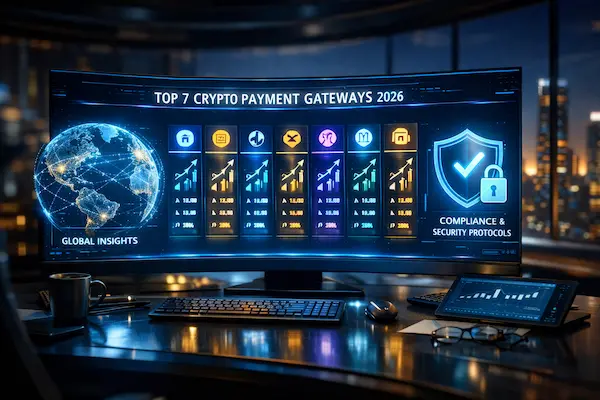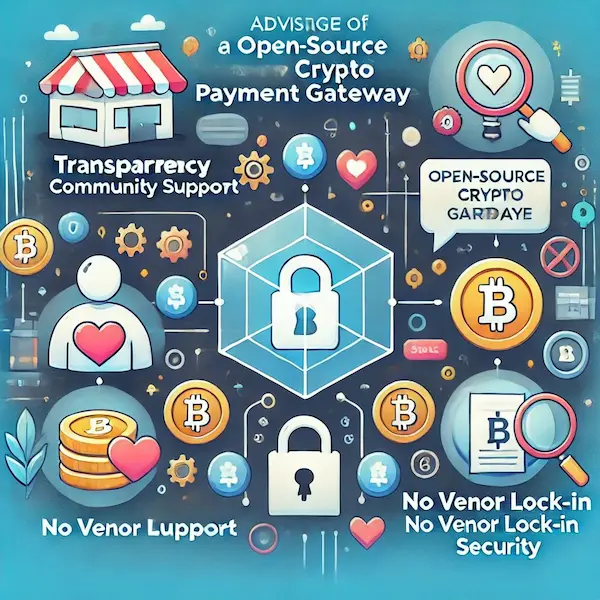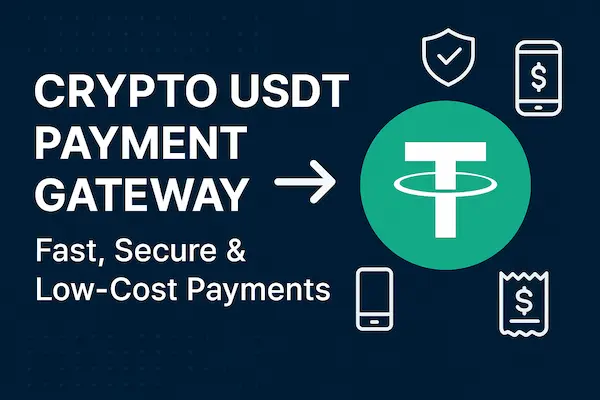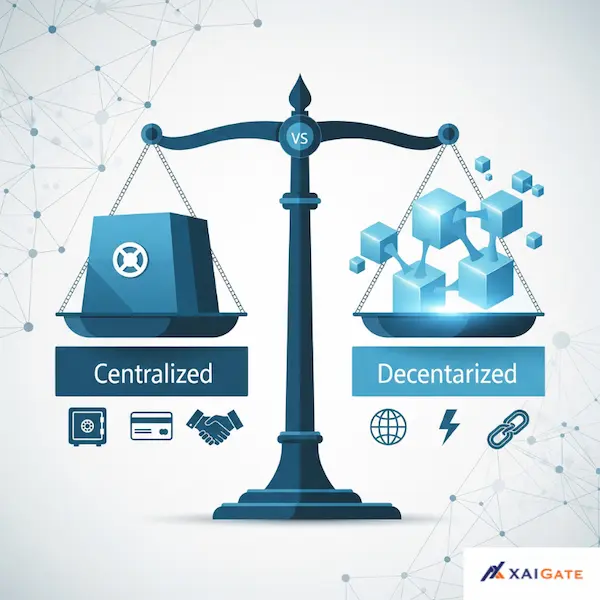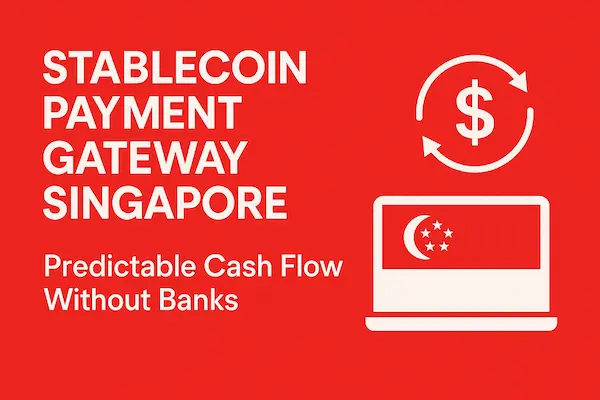In 2026, crypto payment service provider have become the financial backbone of global digital commerce. These fintech platforms enable merchants to accept cryptocurrencies and stablecoins like USDT and USDC, offering instant cross-border settlements with lower fees than traditional systems. Regulated under frameworks such as MAS (Singapore), VARA (Dubai), and FCA (UK), leading providers like XaiGate, BitPay, and CoinGate combine blockchain speed with regulatory compliance — making them the top choices for businesses adopting borderless, secure, and scalable payment solutions.
Contents
- 1 1. The Rise of Crypto Payment Service Providers in Global Commerce
- 2 2. What Is a Crypto Payment Service Provider?
- 3 3. Top 7 Crypto Payment Service Providers in 2026
- 4 4. How Crypto Payment Providers Work
- 5 5. Why Businesses Use Crypto Payment Service Providers
- 6 6. How to Choose the Right Crypto Payment Service Provider
- 7 7. Pros and Cons of Using a Crypto Payment Service Provider
- 8 8. Market Insights & Future Trends (2026–2030)
- 9 FAQs about Crypto Payment Service Providers (2026)
- 10 Conclusion: The Future Belongs to Compliant, Borderless Payment Systems
1. The Rise of Crypto Payment Service Providers in Global Commerce
In 2026, the global payments industry is being reshaped by crypto payment service providers — a new class of fintech infrastructure powering borderless commerce. These platforms allow merchants to accept digital assets such as Bitcoin, Ethereum, BCH, SOL and stablecoins like USDT and USDC, DAI, while ensuring speed, transparency, and compliance across multiple jurisdictions.
Unlike traditional processors that rely on banking intermediaries, a crypto PSP settles transactions in seconds on blockchain networks, reducing fees from 3–4% to under 1%. This efficiency is especially valuable for international merchants, freelancers, and eCommerce platforms seeking to reach customers beyond regional banking limits.
According to a 2026 report by Chainalysis, over $1.2 trillion in stablecoin transactions were processed by businesses worldwide, with leading providers such as XaiGate (Global, USA, EU and Asia), BitPay (USA), and CoinGate (EU) driving mainstream adoption. These platforms balance innovation and compliance — aligning with regulatory frameworks from MAS (Singapore), VARA (Dubai), and FCA (UK).
The result is a rapidly maturing ecosystem where crypto payments are no longer a niche experiment, but a strategic advantage for forward-thinking businesses. As digital assets evolve from speculation to utility, crypto payment service providers stand at the center of this global transformation — merging blockchain technology with financial reliability.
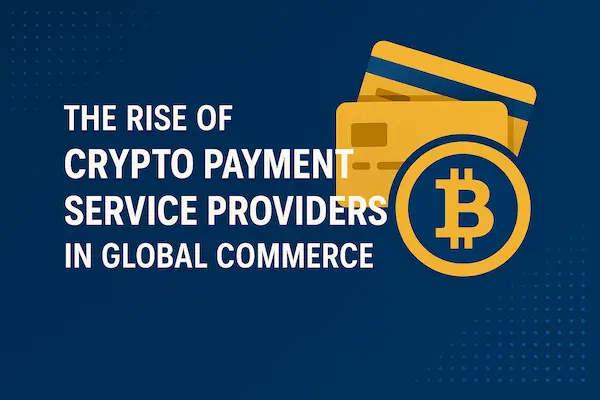
2. What Is a Crypto Payment Service Provider?
A crypto payment service provider (PSP) is a financial technology platform that allows merchants to accept cryptocurrencies and stablecoins as payment, settling transactions directly through blockchain networks instead of traditional banks. It acts as a bridge between digital assets and fiat finance, offering instant, secure, and low-cost global transactions.
1. Core Function
A crypto PSP verifies blockchain payments, converts crypto into fiat or stablecoins such as USDT and USDC, and ensures compliance with AML/KYC requirements.
Modern providers also offer API integration, eCommerce plugins, and real-time dashboards, enabling businesses to accept crypto payments without complex setup.
2. Why It Matters in 2026
By 2026, crypto PSPs have evolved into critical infrastructure for global commerce. They reduce settlement times from days to seconds, cut fees to under 1%, and eliminate chargebacks.
Platforms such as XaiGate, BitPay are helping enterprises, freelancers, and cross-border merchants access borderless payments under compliant frameworks from MAS (Singapore) and VARA (Dubai).
3. Real-World Example
A design agency in USA, EU and Singapore using XaiGate can invoice a client in Dubai, receive payment in USDT, and have it settled instantly—no waiting for SWIFT transfers or conversion delays.
This simplicity is what makes crypto payment service providers so powerful: fast, compliant, and globally accessible.
4. Expert Perspective
“Crypto payment service providers are redefining digital payments by merging blockchain speed with financial compliance and user trust.”
— Fintech Research Team, XaiGate 2026
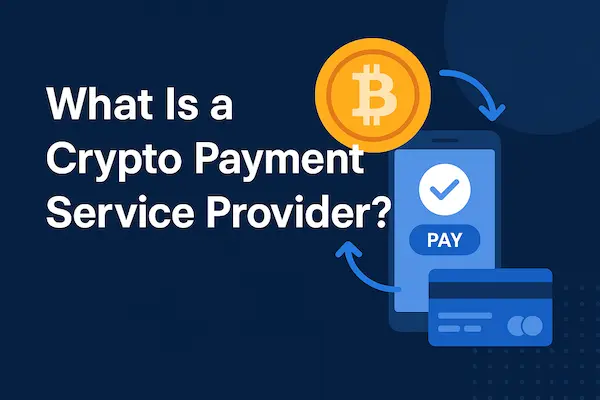
3. Top 7 Crypto Payment Service Providers in 2026
The year 2026 marks intense competition among crypto payment service providers.
Each platform targets a specific niche — from enterprise compliance to decentralized speed — reflecting how blockchain payments have matured into a stable, regulated infrastructure.
1. XaiGate (Global)
XaiGate is a stablecoin-focused PSP that offers instant USDT/USDC settlements with optional No-KYC onboarding for low-risk merchants. Built under MAS-aligned guidelines, it bridges compliance and speed, ideal for Web3 and cross-border e-commerce platforms.
2. BitPay (United States)
BitPay remains one of the most established crypto PSPs, supporting BTC, ETH, and stablecoins. It provides enterprise-grade reporting, fiat conversion (USD/EUR), and tax integration — preferred by regulated businesses and NGOs.
3. NOWPayments (Lithuania)
A non-custodial crypto payment gateway serving 160+ assets. NOWPayments focuses on privacy, lightweight integration (APIs & widgets), and instant settlements in stablecoins — popular among SMEs and donation platforms.
4. CoinGate (Europe)
CoinGate operates under EU licensing and supports 70+ currencies.
Known for transparency and multi-merchant management, it offers optional fiat settlement while maintaining strong AML oversight under FCA-equivalent rules.
5. BTCPay Server (Open Source)
A fully self-hosted crypto PSP, allowing complete control and zero fees.
Favored by developers and privacy-focused businesses, it represents the most sovereign model of blockchain payment processing.
6. CoinPayments (Global)
CoinPayments has one of the largest merchant networks worldwide.
It supports multi-chain transactions and auto-conversion to stablecoins, making it suitable for high-volume marketplaces and crypto retailers.
7. Triple-A (Singapore & Dubai)
Triple-A bridges Asia and MENA markets with full regulatory licenses under MAS and VARA. Its fiat payout channels and risk monitoring AI make it ideal for enterprises that require compliance and real-time settlement in stablecoins.
Comparison Table — Top 7 Crypto Payment Service Providers 2026
| Provider | Location | Supported Assets | KYC Policy | Settlement Type | Key Feature |
|---|---|---|---|---|---|
| XaiGate | Global | USDT, USDC, BTC, ETH, BCH, SOL, 9800 coins | Optional | Instant | MAS-aligned No-KYC tier |
| BitPay | USA | BTC, ETH, BCH | Required | 1–2 days | Enterprise fiat conversion |
| NOWPayments | Lithuania | 160+ | Optional | Instant | Non-custodial API integration |
| CoinGate | EU | 70+ | Required | 1–3 days | EU-licensed reporting |
| BTCPay Server | Global | BTC, Lightning | None | Instant | Open-source self-hosted |
| CoinPayments | Global | 250+ | Required | Instant | Wide merchant network |
| Triple-A | Singapore / Dubai | Stablecoins + BTC | Required | Instant | MAS + VARA licensed |
4. How Crypto Payment Providers Work
A crypto payment service provider connects merchants and customers through blockchain-based payment processing.
Unlike banks or card networks that rely on intermediaries, crypto PSPs use smart contracts, blockchain validation, and instant settlement to transfer value directly and transparently.
1. Payment Initiation
When a customer checks out using crypto, the PSP generates a unique payment address or QR code. The user pays with their digital wallet — for example, MetaMask, Binance Pay, or Trust Wallet.
2. Blockchain Verification
The crypto PSP confirms the transaction on-chain, ensuring it meets the network’s required confirmations.
Some providers like XaiGate or BitPay use hybrid validation (on-chain + off-chain) to speed up confirmation time.
3. Conversion and Settlement
Once validated, the payment is either:
Settled in stablecoins such as USDT or USDC for instant liquidity, or
Converted to fiat (USD, EUR, SGD) through the PSP’s exchange partners.
This process protects merchants from volatility while maintaining global reach.
4. Compliance and Reporting
Modern crypto PSPs embed compliance automation. They integrate AML/KYC filters, Travel Rule checks, and generate tax-ready transaction reports.
This alignment with frameworks like MAS (Singapore) and VARA (Dubai) ensures both legal security and operational transparency.
5. Merchant Dashboard and API Integration
Merchants access a unified dashboard to track transactions, manage settlements, and generate reports.
APIs and plugins allow instant integration with Shopify, WooCommerce, or Magento, bringing blockchain payments to mainstream commerce.
6. Real Example in Action
A freelancer in Indonesia uses XaiGate to receive a USDT payment from a European client.
The transfer is verified on-chain within seconds, converted automatically to fiat, and settled directly to their bank account – all within a minute, without involving traditional remittance channels.
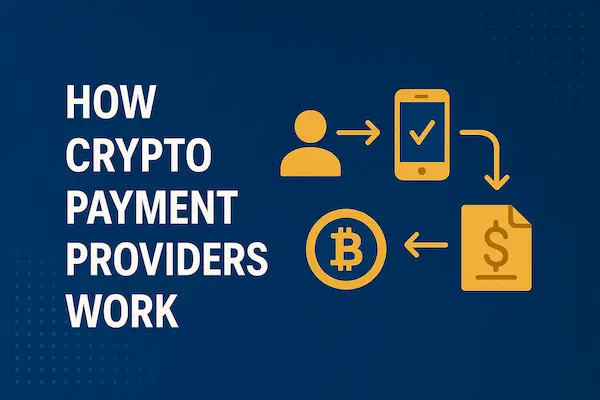
Summary Table: PSP Transaction Flow
| Step | Process | Outcome |
|---|---|---|
| 1 | Customer initiates crypto payment | Payment request generated |
| 2 | Blockchain verifies transaction | Transaction confirmed |
| 3 | Conversion & settlement | Instant payout in stablecoin or fiat |
| 4 | Compliance check | AML/KYC validated |
| 5 | Dashboard update | Merchant report completed |
5. Why Businesses Use Crypto Payment Service Providers
As global trade becomes more digital, businesses are turning to crypto payment service providers to reduce friction, speed up transactions, and reach customers beyond the limits of traditional banking.
These platforms combine blockchain efficiency with compliance-driven payment infrastructure, giving merchants a competitive edge in 2026.
1. Faster Global Settlements
A crypto PSP processes payments within seconds, compared to the 2–5 business days required by banks.
This real-time settlement allows online merchants, SaaS platforms, and exporters to receive funds instantly and improve cash flow.
Stablecoins such as USDT, USDC, and DAI have made this even smoother by maintaining predictable value across borders.
2. Lower Transaction Costs
Traditional payment processors charge 2–4% per transaction, plus hidden conversion fees.
In contrast, most crypto payment gateways operate at 0.2–1%, making them cost-efficient for both startups and global enterprises.
For high-volume businesses, this difference translates to thousands of dollars saved each month.
3. No Chargebacks or Reversals
Because crypto transactions are recorded on immutable blockchain ledgers, there are no chargebacks or forced reversals.
This gives merchants protection against fraud and reduces administrative overhead from payment disputes.
4. Expanded Market Reach
By accepting crypto, businesses instantly open their doors to global customers — including those without access to credit cards or PayPal.
A merchant in Singapore can sell to buyers in Brazil, Nigeria, or Vietnam without worrying about currency barriers or remittance limits.
This borderless accessibility is one of the strongest advantages of modern crypto payment service providers.
5. Compliance and Security Advantage
Leading PSPs like XaiGate and BitPay operate under frameworks from MAS (Singapore) and FCA (UK), integrating advanced AML/KYC monitoring and Travel Rule compliance.
This ensures that businesses remain protected while using blockchain infrastructure safely.
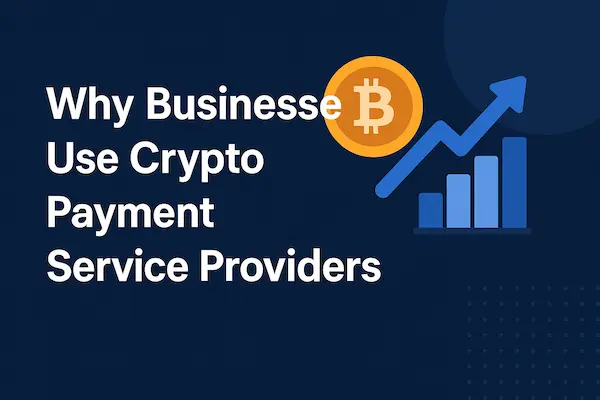
Summary: Business Value of Using a Crypto PSP
| Benefit | Description | Strategic Impact |
|---|---|---|
| Instant Settlements | Payments processed within seconds | Faster cash flow |
| Low Fees | 0.2–1% vs 3–4% in traditional PSPs | Cost savings |
| No Chargebacks | Immutable blockchain transactions | Fraud prevention |
| Global Reach | Accept payments worldwide | Market expansion |
| Regulatory Compliance | MAS, VARA, FCA-aligned systems | Legal assurance |
6. How to Choose the Right Crypto Payment Service Provider
Selecting the right crypto payment service provider is critical for any business integrating blockchain payments.
The ideal PSP must balance transaction efficiency, compliance, and long-term scalability.
1. Licensing and Regulatory Status
Always verify whether the crypto PSP is registered or supervised by trusted authorities such as MAS (Singapore), VARA (Dubai), or FCA (UK).
Licensed providers offer better transparency, security, and consumer protection — essential for enterprises handling global transactions.
2. Supported Currencies and Networks
Choose a provider that supports multiple assets — BTC, ETH, USDT, USDC, and emerging stablecoins.
A multi-chain payment gateway allows flexibility and ensures liquidity even during network congestion or exchange downtime.
3. Integration and Developer Tools
A good crypto PSP should provide robust APIs, SDKs, and plugins for platforms like WooCommerce, Shopify, or Magento.
Easy integration minimizes setup time and enables instant payment acceptance.
4. Settlement Options and Speed
Assess whether settlements occur on-chain, off-chain, or through hybrid channels.
Instant settlement in stablecoins such as USDT/USDC protects against volatility while keeping liquidity global.
5. Security and AML/KYC Compliance
Top providers incorporate AML automation, Travel Rule support, and risk scoring.
This ensures each transaction is compliant and protected from fraudulent or suspicious activity — key for Google News trust signals and user confidence.
Summary Checklist
| Criterion | Ideal Standard | Why It Matters |
|---|---|---|
| Regulation | Licensed under MAS / VARA / FCA | Builds legal trust |
| Supported Assets | BTC, ETH, USDT, USDC + multi-chain | Expands customer reach |
| Integration Tools | API, SDK, plugins | Faster deployment |
| Settlement Type | Instant / Stablecoin | Ensures liquidity |
| Compliance Layer | AML + KYC automation | Regulatory assurance |
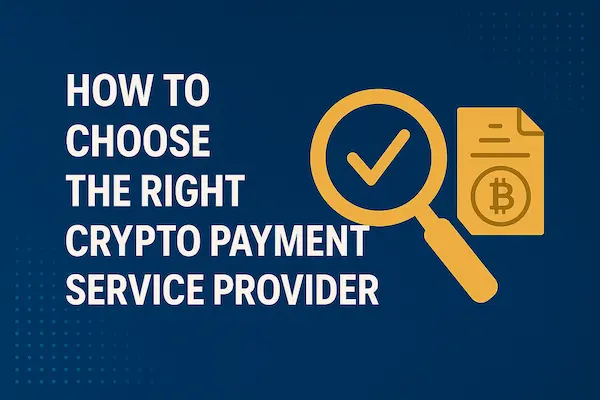
7. Pros and Cons of Using a Crypto Payment Service Provider
Before integrating blockchain payments, every business should weigh the advantages and trade-offs of using a crypto payment service provider. Understanding both sides helps leaders make informed, long-term financial decisions.
1. Major Advantages
Speed and Efficiency – Transactions settle within seconds instead of days.
Lower Fees – Average fees drop to 0.5–1%, saving significant margins for merchants.
Borderless Access – Accept payments globally without exchange-rate complications.
Stablecoin Flexibility – Payments in USDT or USDC maintain predictable value and instant liquidity.
Transparency and Security – Blockchain verification ensures each transaction is traceable and immutable.
2. Common Drawbacks
Market Volatility – Coins like BTC or ETH fluctuate; using stablecoins reduces this risk.
Regulatory Uncertainty – Laws differ by region; merchants must monitor changes in MAS, VARA, or FCA frameworks.
Technical Complexity – Integration requires basic wallet and blockchain knowledge.
Limited Fiat Bridges – Some PSPs still rely on partners for cash-out services.
3. Balanced Assessment
For most businesses, the benefits outweigh the limitations — especially when using regulated or hybrid crypto PSPs such as XaiGate or BitPay, which combine blockchain speed with compliance stability.
The right provider transforms crypto payments from an experiment into a practical, revenue-driving channel.
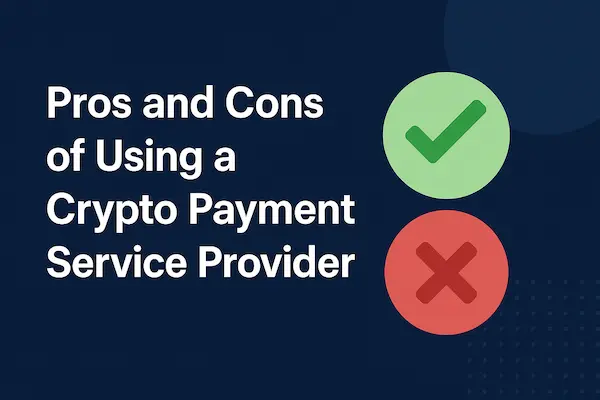
8. Market Insights & Future Trends (2026–2030)
The crypto payment service provider industry is entering a mature growth phase.
Between 2026 and 2030, global adoption will accelerate as regulation stabilizes and blockchain infrastructure becomes enterprise-ready.
1. Stablecoin Dominance
Over 70% of crypto transactions now use USDT or USDC.
Stablecoins will remain the preferred medium for payments, combining blockchain efficiency with price stability.
2. Expansion of Regulated PSPs
Licensed crypto PSPs under MAS, VARA, and FCA will dominate the market.
Regulated models attract banks, fintechs, and institutional clients seeking compliant payment rails.
3. Integration with AI and Automation
AI-driven fraud detection and transaction scoring will enhance PSP security.
Smart analytics will personalize risk profiles and optimize cross-border routing in real time.
4. Rise of Hybrid and Non-Custodial Models
Businesses demand both control and compliance.
Hybrid PSPs like XaiGate combine self-custody with instant fiat settlements, bridging DeFi and regulated finance.
5. Cross-Chain & CBDC Interoperability
Next-generation blockchain payment gateways will connect with CBDCs and multi-chain ecosystems, making crypto payments as universal as card networks today.
FAQs about Crypto Payment Service Providers (2026)
1. What is a crypto payment service provider?
A crypto payment service provider (PSP) is a fintech platform that enables merchants to accept cryptocurrencies and stablecoins as payment, settling transactions instantly on blockchain networks.
2. How does a crypto PSP work?
It validates blockchain transactions, converts crypto into fiat or stablecoins like USDT or USDC, and ensures compliance with AML/KYC regulations to protect both merchants and customers.
3. Are crypto payment service providers legal in 2026?
Yes. Most regulated crypto PSPs operate legally under frameworks such as MAS (Singapore), VARA (Dubai), and FCA (UK), ensuring transparency and trust.
4. What are the main benefits of using a crypto PSP?
They offer instant global settlements, low transaction fees, no chargebacks, and access to a borderless customer base, which traditional PSPs cannot match.
5. Which is the best crypto PSP in 2026?
Top-performing providers include XaiGate, BitPay, NOWPayments, and Triple-A, known for fast stablecoin settlements and regulatory compliance.
6. Do crypto PSPs support stablecoins like USDT or USDC?
Yes. Nearly all modern blockchain payment gateways support stablecoins, allowing merchants to avoid volatility while maintaining instant liquidity.
7. How can a business integrate a crypto PSP?
Integration is quick via APIs, SDKs, or eCommerce plugins for platforms like Shopify and WooCommerce, requiring no deep blockchain expertise.
8. What are the potential risks of using a crypto payment service provider?
Risks include crypto price volatility, regulatory changes, and technical challenges if the provider lacks proper security or compliance standards.
Conclusion: The Future Belongs to Compliant, Borderless Payment Systems
The evolution of the crypto payment service provider sector signals a major shift in how global businesses move value.
In 2026, blockchain payments are no longer experimental — they’ve become a mainstream infrastructure that merges the speed of crypto with the trust of traditional finance.
Leading PSPs such as XaiGate, BitPay, and Triple-A are setting new benchmarks for compliance, instant settlement, and cross-border accessibility.
As MAS, VARA, and FCA continue refining their frameworks, businesses that adopt compliant crypto PSPs early will gain the strongest global advantage.
Quick Summary — Why Businesses Choose Crypto PSPs
| Key Aspect | Traditional PSP | Crypto PSP (2026 Standard) |
|---|---|---|
| Settlement Time | 2–5 business days | Instant (on/off-chain) |
| Transaction Fees | 2–4% | 0.2–1% |
| Chargeback Risk | High | None |
| Regulatory Coverage | National | Global (MAS, VARA, FCA) |
| Accepted Currencies | Fiat only | Crypto + Stablecoins |
| Merchant Access | Limited by geography | Borderless, multi-chain |
Blockchain-based payments are rewriting the future of commerce.
Whether you’re a merchant, fintech startup, or enterprise, adopting a trusted crypto payment service provider today means securing your place in tomorrow’s digital economy.
Ready to Accept Crypto Payments?
Start now with XaiGate — The Trusted Stablecoin Payment Gateway.
Experience instant USDT/USDC settlements, No-KYC tier for low-risk merchants, and full MAS-aligned compliance.
✅ Accept payments globally.
✅ Lower your fees.
✅ Stay 100% compliant — all in real time.
For daily updates, subscribe to XAIGATE’s blog!
We may also be found on GitHub, and X (@mxaigate)! Follow us!

